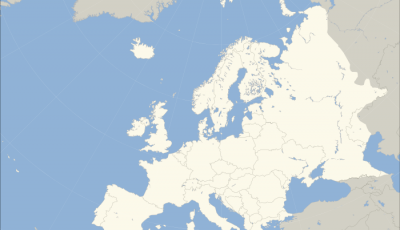IBM, banking partners to advance new trade finance platform Batavia for global trade via air, land, sea
 IBM announced in a press release CoinReport received that it, along with its banking partners – Commerzbank, Bank of Montreal (BMO), Erste Group and CaixaBank – will advance new, blockchain-based trade finance platform Batavia for global trade via air, land and sea.
IBM announced in a press release CoinReport received that it, along with its banking partners – Commerzbank, Bank of Montreal (BMO), Erste Group and CaixaBank – will advance new, blockchain-based trade finance platform Batavia for global trade via air, land and sea.
“In working with hundreds of clients to implement blockchain solutions, financing global trade has emerged as one of the use cases most in need of innovating,” said Fabio Keller, IBM project lead, in the release we received. “Targeting the creation of large, global, multi-modal networks that bring transparency and trust to each step of the trade process is what makes Batavia a platform with so much potential to transform the way companies around the world do business with one another.”

A southeast view of the Bank of Montreal’s head office, Montréal.
BMO, Commerzbank, Erste Group and CaixaBank joined the endeavor by UBS as well as IBM in 2016 to develop Batavia. Created to be openly accessed by organizations of all sizes anywhere in the world, Batavia can support trade finance for transactions across all methods of trade, whether goods are being transported by air, land or sea.
“BMO takes great pride in being a leader in trade and supply chain finance innovation. Our objective is to deliver simple and efficient solutions founded on technology that delivers cost, efficiency and risk benefits to our clients and the bank,” said Jeffrey Shell, managing director and head of global trade & banking at BMO, in the press release we received. “We are very excited to participate in this initiative and sense the development of real, positive outcomes for our clients in North America and around the world. As a partner in Batavia we are strengthening our ability to remain highly relevant to our clients as the financial services industry continues to evolve.”

UBS’s principal office at Bahnhofstrasse 45 in Zurich, depicting the current logo, which combines the UBS letters with SBC’s “three keys” symbol.
Batavia progresses the work started by IBM and UBS to build a trade finance platform created on the IBM Blockchain Platform powered by the Hyperledger Fabric Blockchain framework. IBM and the five banks are collaboratively working on the development, in consultation with transportation industry specialists as well as customers of the banks to make sure that the platform is intuitive and flexible for customers and can be commercialized. Batavia is aiming pilot transactions with customers on the network in early 2018 to test and refine the platform.
“Today, the process of securing and financing trade is highly cumbersome for corporates,” said Beat Bannwart, head strategic innovation & market development, corporate & institutional clients at UBS. “Through working closely with our clients, we aim to innovate their user experience through a simple, digital and automated way of arranging, securing and financing their international trade transactions by leveraging new technology and creating an open ecosystem.”
Intended to support more cost-effective, efficient and transparent transactions, Batavia will assist organizations in more easily creating multi-party, cross-border trading networks the world over. The platform will let transacting parties view the advancement of a shipment as it leaves the warehouse, is loaded onto a plane, truck or boat and reaches the receiving port, automatically releasing payments incrementally along each step of the process.
Batavia will assist participants in connecting with each other in a trading network, carrying the potential to transform world trade. With the open nature of the platform, which promotes extensive participation by many banks, vendors and regulators, new trade corridors will open, new players will enter the market and processes that previously were exorbitantly slow and expensive will speed up.

CaixaBank building, Barcelona
CaixaBank chief operating officer Jordi Fontanals commented on the occasion, “At CaixaBank we operate a fully customer-centric innovation model, using technology and creating original products to support individuals and businesses alike. Harnessing blockchain technology offers enormous potential for driving digitization, but more importantly it paves the way for international projects in collaboration with multiple partners, with these being created and designed to serve our customers. Batavia is a prime example of this, allowing us to bolster the foreign trade services that CaixaBank provides to its clients with commercial operations around the world.”

Bernd Laber, group executive trade finance & cash management, Commerzbank AG.
Bernd Laber, group executive trade finance & cash management, Commerzbank AG, said, “Commerzbank processes around 30% of German foreign trade and a significant share of European foreign trade activities. As a strong partner for international trade finance, we assist our clients with premium solutions as well as in mitigating risks. With this collaboration and the envisaged platform, we strive to be at the forefront of exploring modern technology in the digital transformation of international trade finance processes.”
Conventionally, trading associates, including purchasers, vendors, their banks, transporters, inspectors and regulators have depended on huge volumes of paper-based documentation to securely carry out trade transactions. This process can take up to weeks, costing money, making data susceptible to errors because of recurring manual reprocessing and tying up capital. Postponements and absence of transparency in trade can make it tough for companies to access financing, restricting their ability to trade across borders and increase profits.
The Batavia platform will remove the requirement to treat and compare documents, allowing purchasers, vendors and their banks to perform transactions with substantial transparency and efficiency. Blockchain allows superior transparency by digitizing agreements entered into a perpetual, unchallengeable ledger that all involved parties in a trade transaction can view. By means of user input or IoT sensor data, the status of a contract until its completion is updated automatically. Batavia will save users time and money by making sure the data is correct and complete when it changes hands, cutting down on third-party verification processes and lessening the potential for mistakes, fiddling or disagreements. When all players in a transaction can have access to a collective version of the truth, they can communicate with better faith, creating greater and more distributed networks, and successively, increasing profits.

Erste Group First Campus, Vienna. (© Erste Bank / Christian Wind)
“Erste Group is committed to implementing innovations that provide our clients with greater transparency, efficiency and utility in the pursuit of their business and financial interests. By transforming the processes in international trade financing, the Batavia platform promises to boost foreign trade, thus also strengthening a key prosperity-promoting pillar of the economies in our region, Central and Eastern Europe,” said Patrick Götz, head of corporate flow products at Vienna-based Erste Group Bank AG.
Image credits:
IBM logo – Courtesy of IBM via PR firm Ketchum
BMO head office – DXR (CC BY-SA 4.0)
UBS principle office – Public domain image
CaixaBank building – Jordiferrer (CC BY-SA 3.0)
Bernd Laber’s photo – Via Media Centre of Commerzbank’s website
Erste Group Vienna – © Erste Bank / Christian Wind (via News & Media section of Erste Group’s website)













IBM banking partners are given good trade and facing some of financial problems the quality and global nature of information can be update from online here. The funding nature of investment can be controlled by them. The new trade policy can be implement and going as successfully. The platform in good transparency in efficient manner. The trade transaction and good views are making sure for that policy. The communication is better and given great benefits for the business people